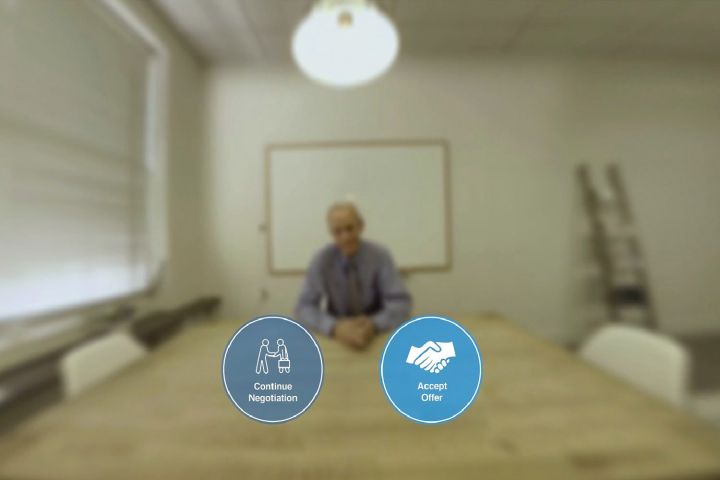
One explanation for this gap in earnings, particularly when it comes to similar jobs, is that women are less likely to negotiate when it comes to salary offers. For example, one study of graduating MBA students discovered that half of the men had negotiated their job offers, compared to just one-eighth of the women.
With this in mind, a new virtual reality tool created by Oakland, California, developers Variable Labs hopes to help — and it’s got Washington backing to do so.
Designed to simulate salary negotiations, the Samsung Gear VR app takes the form of a branching narrative to help women navigate the challenges of getting paid what they’re worth. The resulting proof of concept was one of seven apps created as part of a two-month “hackathon. It was presented at a special White House event on Tuesday.
“We teamed up with the American Association of University Women, who are the leaders in providing skills and tools to women for salary negotiation,” Variable co-founder Mario de la Vega tells Digital Trends. “We’ve taken their curriculum and translated it into a 360-degree, immersive, cinematic VR experience. [With the app, users] can make a pitch to a potential employer about a higher compensation package, or practice responding to resistance from a virtual manager. The idea is that we’re building it up to have various levels of difficulty, so [higher levels] might have a more resistant boss that is going to give more pushback.”
Right now, the app is more like an adventure game where the “player” picks different options out of a limited selection, although de la Vega says he could imagine ways to develop the concept going forward. “We could use breakthroughs in voice recognition, motion tracking, and voice tracking to provide feedback on things like eye contact, body language, whether people are speaking loudly and directly enough, [or] whether there voice is wavering,” he says.
For now, however, it remains an interesting tool that hints at some of the real-world applications of VR. Rather than punishing people for being good negotiators — as companies like Reddit are doing by banning such negotiations — tools like this could act as training platforms to give everyone the skills to carry out tricky financial conversations.
As Commerce Secretary Penny Pritzker, one of the people at the White House presentation, said: “I wish I had these tools to benefit my own career, and for the benefit of the businesses I’ve run.”


